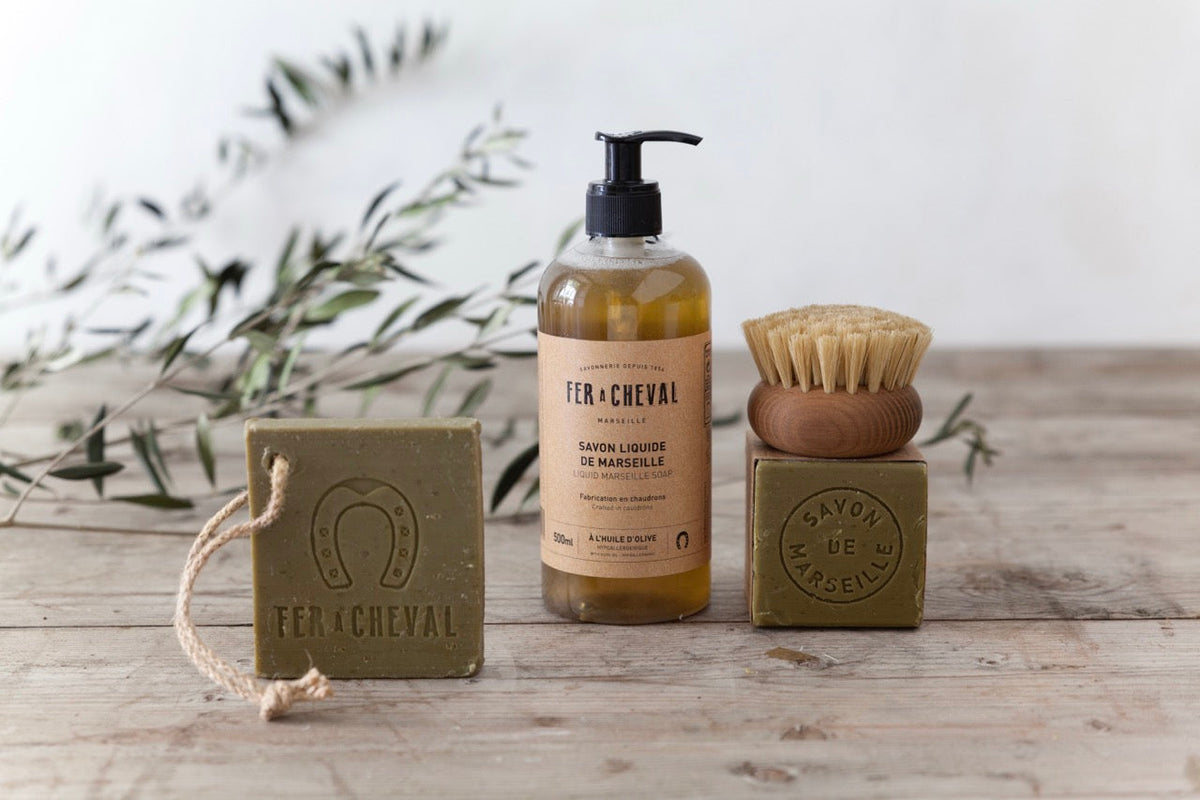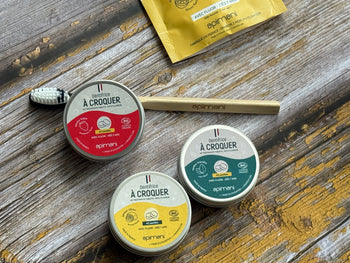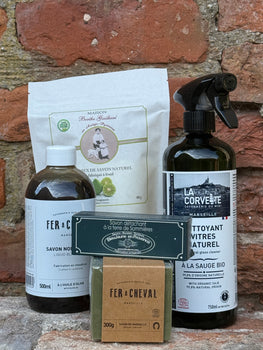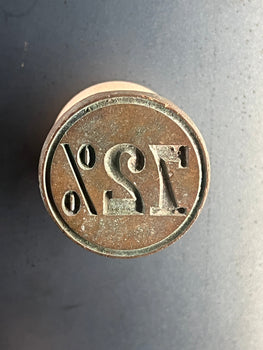
Gifting couldn't be easier
Add a gift message to be emailed to when their parcel arrives, or at a time of your choice.
When choosing between liquid soap and bar soap, your decision can depend on personal preference, skin type, sustainability, and tradition. Both forms of soap have unique strengths, and each has a deep-rooted history in skincare and hygiene.
Bar soap is the original form of soap, dating back to Ancient Babylon (around 2800 BCE). Traditional bar soaps, including iconic varieties like Savon de Marseille, were made from natural oils such as olive oil, and were widely used in Europe by the Middle Ages.
Liquid soap, on the other hand, is a more recent invention. It gained popularity in the 19th century with commercial formulations and became a modern household staple in the 1980s with the rise of pump dispensers and antibacterial claims.
Often made from saponified oils like olive, coconut, or palm
May include clays, exfoliants, essential oils, or botanicals
Naturally rich in glycerin, which moisturises the skin
Traditionally cold- or hot-processed and cured for weeks
Usually made with potassium hydroxide instead of sodium hydroxide
May contain water, humectants, stabilizers, and preservatives
Can be enhanced with fragrances, essential oils, or moisturisers
Often available in pump bottles or refill pouches for ease of use
Benefits of Bar Soap
Eco-friendly: No plastic packaging, often biodegradable
Long-lasting: Bars typically last longer with proper drying
Fewer preservatives: Especially in artisan and natural soaps
Tradition and craftsmanship: Especially with French or Castile bars
Benefits of Liquid Soap
Bar soap is often more alkaline, which can dry skin if not well-formulated. Look for bars with high olive oil content or added shea butter for sensitive skin.
Liquid soap can be more balanced in pH and less harsh for daily use. However, commercial versions may contain sulfates, parabens, or artificial fragrances, which can irritate some users.
For allergy-prone or eczema-sensitive skin, fragrance-free or cold-processed bar soaps with minimal ingredients are often a good choice.
Choose bar soap if you value tradition, low waste, or are looking for an artisanal option.
Choose liquid soap for ease of use, shared spaces, or if you prefer pump bottles.
In Provence, both liquid and bar soaps are made following traditional techniques—liquid versions like Savon Liquide de Marseille use natural oils and are cooked in cauldrons, just like the solid blocks.
Ultimately, both liquid and bar soap have a place in a well-rounded skincare routine. Whether you love the feel of a hand-cut bar or the clean convenience of a pump, choose what suits your lifestyle and skin best—and consider products made with natural oils, minimal processing, and Provençal traditions for a luxurious, skin-loving experience.
©️ French Soaps UK 2025
If you would like help shopping this article, or have further product or ingredient questions then please contact us and we will be happy to help. E. bonjour@frenchsoaps.co.uk T. 01423 803080
Telephone or Whats App: 01423 803080
Email: bonjour@frenchsoaps.co.uk
Social: @FrenchsoapsUK
Address: Unit 14 Ousegill Business Park, Carr Side Road, Great Ouseburn, North Yorkshire, YO26 9AE
Sign up for our newsletter and get all the latest news, offers and more delivered straight to your inbox. You can unsubscribe at any time. By 'submitting' you are agreeing to our T&C's and Privacy Policy.
Gifting couldn't be easier
Add a gift message to be emailed to when their parcel arrives, or at a time of your choice.



